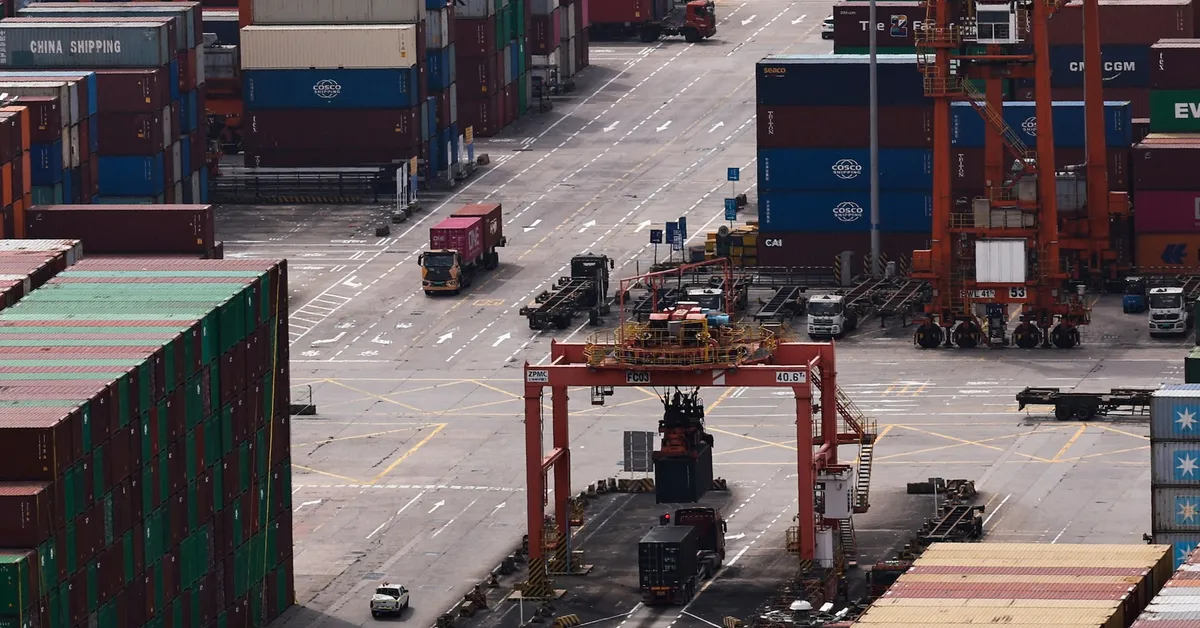
On April 21, 2023, China issued a stern warning to countries considering striking broader economic deals with the United States that could undermine its interests. This warning underscores the escalating tensions in the ongoing trade war between the world's two largest economies. China's Commerce Ministry emphasized its resolve to oppose any agreements made at its expense and promised to implement countermeasures in a firm and reciprocal manner.
The ministry's comments came in response to a report by Bloomberg, which stated that the Trump administration is preparing to pressure nations looking for tariff reductions or exemptions from the U.S. to limit their trade with China. This pressure could include imposing monetary sanctions, further complicating the international trading landscape.
President Donald Trump recently paused the broad tariffs he had announced for several countries on April 2, maintaining the highest rates specifically for China. This targeted approach has resulted in the U.S. raising tariffs on Chinese imports to an alarming 145%, while China retaliated with duties of 125% on U.S. goods.
Despite these challenges, the Chinese government has indicated that it will not increase its own tariffs further. According to a spokesperson from the Commerce Ministry, the U.S. has misused tariffs against all its trading partners under the guise of 'equivalence', while pressuring nations to engage in reciprocal tariffs negotiations.
China remains committed to safeguarding its rights and interests, expressing its willingness to strengthen ties with other nations. As stated by Bo Zhengyuan, a partner at a China-based policy consultancy, many countries, particularly in Southeast Asia, have significant reliance on China for investment, industrial infrastructure, and technology. This reliance may lead them to resist U.S. demands.
In a demonstration of its hardline stance, China is set to convene an informal meeting of the United Nations Security Council this week. The purpose of this meeting is to accuse the U.S. of bullying and undermining global peace and development efforts through its aggressive tariff policies.
Earlier this month, U.S. Trade Representative Jamieson Greer revealed that nearly 50 countries have approached his office to address the high additional tariffs imposed by President Trump. Since then, several bilateral discussions on tariffs have occurred. For instance, Japan is contemplating increasing imports of soybeans and rice from the U.S., while Indonesia is looking to boost imports of U.S. food and commodities while reducing orders from other nations.
Furthermore, the Trump administration has been actively trying to limit China's advancements in developing advanced semiconductor chips, which the U.S. claims could serve military purposes. Recently, the administration also introduced port fees on China-built vessels to curb its dominance in the shipbuilding sector.
In response to these ongoing tensions, China's President Xi Jinping recently visited three Southeast Asian countries to strengthen regional ties and encourage trade partners to resist unilateral actions. In an article published in Vietnamese media, Xi stated, "There are no winners in trade wars and tariff wars," a message that subtly critiques U.S. policies without directly naming the country.
This complex interplay of diplomatic relations and trade policies highlights the intricate nature of global trade dynamics, especially as both China and the United States navigate their economic futures amidst rising tensions.